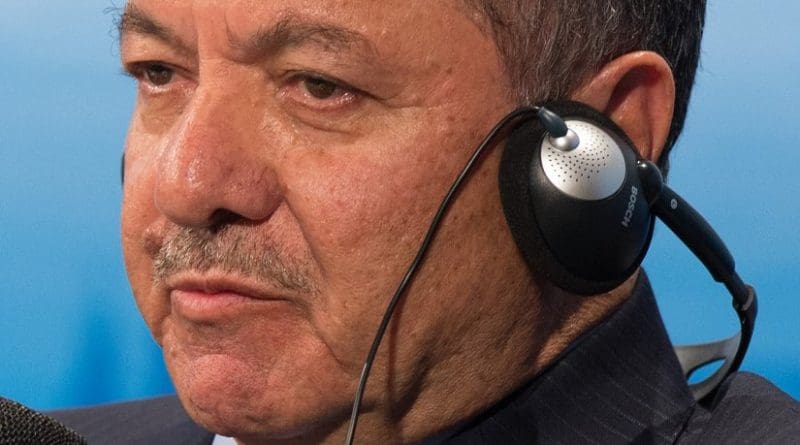Rejecting Secession And Marginalizing Kurds – OpEd
By Arab News
By Abdulrahman Al-Rashed*
The president of the Kurdistan Regional Government (KRG), Masoud Barzani, tried to realize his people’s long-held dream of an independent state, despite predictions of failure. So why did he do it?
Had he not tried, he may have been accused of failing his people, especially since he assumed the task of working with Iraq’s government militarily and politically in the past few years, and cooperating with the international community to fight terrorist organizations, during which Kurdish blood was spilled.
But Barzani’s referendum, which would guarantee a vote in favor of independence, was ill-conceived because no states in the region were prepared to support him due to their fears of separatism within their own borders. The same applies to secessionist plans in southern Yemen and elsewhere in the region. A majority vote is not enough to accomplish independence; international recognition of the referendum result is much more important.
That is why Saudi Arabia, Turkey and Iran, despite their differences, opposed Kurdish secession, or more diplomatically, announced their support for Iraq’s unity. These regional powers were supported by international ones.
There was an important message in opposing Kurdish secession: No local or regional power is allowed to change internal situations. This message was not only meant for the Kurds, but also for all Iranian-supported groups in Iraq, and any other group for that matter. It was also directed at all regional states that are trying to exploit the chaos of war in order to impose their own little republics.
Moreover, it seems that the rapprochement between Saudi Arabia and Iraq was accelerated in order to make an important correction in the foreign policy toward these areas which need rapprochement rather than negligence.
Although we are against dividing Iraq for the benefit of any group, this does not mean staying silent about attempts to weaken the Kurdish component, which is very important for Iraqi and regional balances.
It should also not be assumed that we will accept weakening Barzani’s authority, as he is a prominent leader in Iraq and the region. Some Kurdish powers are trying to exploit the current crisis against Barzani and his authority. Ankara, Tehran and Baghdad are also trying to weaken him by imposing sanctions on Iraqi Kurdistan and making military threats.
The Kurds made a mistake by holding the referendum and using its result to legitimize secession. Nevertheless, the crisis should be tackled not by confrontation and escalation, but by reconciliation between Irbil and Baghdad. Attempts by some Iraqi powers to punish Kurdish leaders are not in Baghdad’s interests. Rather, they widen the gap between the two sides.
Let us remember that the Kurdish stance in Baghdad, which supported all other Iraqi parties, contributed to ending the rule of Nouri Al-Maliki when he refused to resign and tried to remain as prime minister with unlimited authority for life. The Kurds are vital for the balance of power in Iraq’s political system, which was built during the US occupation of the country.
Exploiting the crisis to weaken the Kurds and the KRG is an Iranian project that suits militias such as the Popular Mobilization Units which, despite raising the Iraqi flag, competes with the Iraqi Army — the country’s legitimate force — and threatens its unity.
In order to stop secessionist tendencies and threats to marginalize the authorities in Baghdad, the promises and commitments that formed modern Iraq and its constitution should be implemented. The Iraqi state is for all Iraqis, not just for the majority or the better-armed party, and its authority is stated in the constitution.
• Abdulrahman Al-Rashed is a veteran columnist. He is the former general manager of Al Arabiya News Channel, and former editor in chief of Asharq Al-Awsat, where this article is also published.

